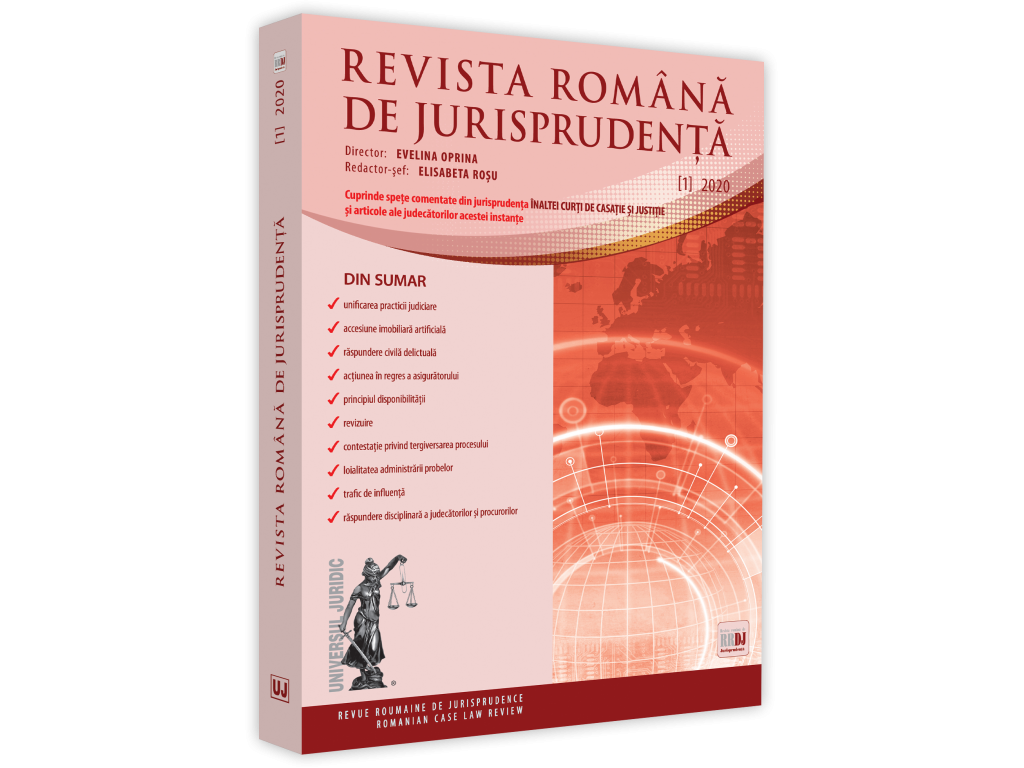Principle of availability and the active role of the judge. Limits for notifying the court
DREPT CIVIL ŞI DREPT PROCESUAL CIVIL
Abstract
The active role of the judge should be understood in the context of ensuring a balance with the other two principles of the civil proceedings, the principle of availability and the adversarial principle, since it cannot be the basis for the substitution of the court in the procedural position of any party and in the defence if its interests. According to Article 22 para. 6 of the Code of Civil Procedure, the judge should rule on the requested matter, and the understanding of this phrase should be related to the provisions laid down in Article 9 para. 2 of the same code, according to which the object and limits of the proceedings are established in the writ of summons. Hence, the limitations of the trial should be related to what represents the object of vesting the court, and the active role of the judge of insisting by all means to establish the factual situation shall be limited to the issues representing the object of the cause on trial, since the court has the duty to clarify only those situations requiring a clarification of the writ of summons, such as that in which the writ of summons is wrongly named, or the clarification which, even if referring to the certain legal institution, the factual reasoning of the writ of summons aims at another institution. Therefore, since the object and legal basis of the action were clearly established in the writ of summons, and the arguments of fact and law which the claimants brought in supporting their claim did not require another clarification of the writ of summons or other clarifications of the procedural framework, the failure to supplement or complement the cause of action shall be attributable to the complaining parties, and it cannot be complemented by the judge, in exercising his active role.








